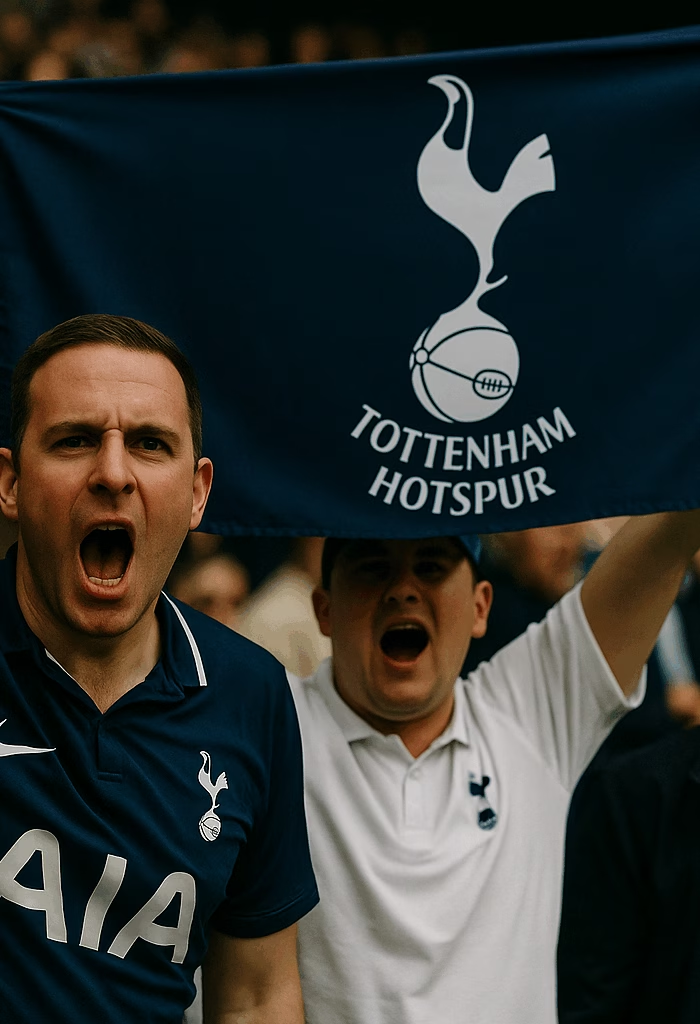
On Thursday morning, as I travelled to work, I have to admit that I was not paying full attention to the interviews on the radio. However, one suddenly caught my ear when the reporter told the interviewee, “That’s just crazy”. It turned out that the individual was a football fan who had travelled to Amsterdam to get a flight to Lanzarote, where he had been able to get on a plane to Bilbao. This young man could not get a seat on a plane direct to Bilbao because everything had been booked.
He was not the only person who had made crazy journeys to get to Bilbao. As the Daily Mail revealed on Monday, some people were making journeys of three days. Yet it is only a two-hour flight from London to Bilbao. What was happening in the city that people were prepared for tortuous, expensive journeys just to get there? It was the UEFA Europa League final between football teams Tottenham Hotspur and Manchester United. Look away now if you do not want to know the score…Tottenham won, 1-0.
Tottenham fans were ecstatic. After 17 barren years, they finally had a trophy to lift — something many of their younger supporters had never witnessed.
The question is why tens of thousands of people have supported Tottenham week after week, only to be bitterly disappointed, year after year. If your business failed to deliver results consistently for almost two decades, you would have probably lost most of your customers. Tottenham can certainly teach us something about loyalty.
Whenever I mention loyalty, it reminds me of a meeting with the former UK supermarket, Safeway. I had been asked to help them plan their strategy, having been taken over by Morrisons. I was sitting with several senior executives when they got onto the subject of customer loyalty. They asked me if I had a “Safeway Card”. I opened my wallet and showed them the card. However, I also showed them my Tesco Clubcard, my Sainsbury’s card and so on. “Oh my goodness,” said their marketing boss, “you are a promiscuous shopper.”
We ended up discussing the value of loyalty cards. I explained that there was research which showed that loyalty cards for supermarkets do not produce any such loyalty in customers. The value of such cards is a marketing myth. If you’re anything like me, you probably favour one supermarket but dip into others out of convenience.
That’s not like Tottenham fans. They don’t pop down the road to support Arsenal if they are out and about in North London. Those fans remain completely loyal. Despite the poor quality of service (no silverware), there is extreme loyalty to the club. Would your customers stick with you for 17 years if you didn’t deliver?
There is plenty of research about customer loyalty, which shows that there are some key factors that are important. These include trust, the quality of the service experience, and overall customer satisfaction. However, if you think of this from the perspective of the Tottenham fans, can they trust the team to deliver? Over 17 years of experience suggest otherwise. Equally, with mounting losses, the fans will likely be bitterly disappointed with low satisfaction levels. So, the supposed key components of loyalty are not present, yet the Tottenham fans were so loyal that they travelled out of their way just to get to one game.
The reason can be found in research from Oxford University, which showed a key component of loyalty. This is the degree to which the fans share their experiences. The sense of community, even when facing losses, is a powerful element that binds people together and helps them remain loyal. Another issue has been discovered in recent research from Indonesia, which showed that storytelling is fundamental to brand loyalty. The stories of individual journeys to Bilbao, the story of those 17 wasted years, are key components in the Tottenham loyalty game.
So why aren’t businesses doing the same? Where is that tight community for your company where customers share experiences, good or bad? Where is the storytelling underpinning everything you do? This came up in discussion with colleagues the other day. Students were curious about why one of our university buildings had a particular name. They were so fascinated by the story that they did not notice their session had gone over time by 20 minutes.
Stories and shared experiences are the foundations for customer loyalty. In turn, they produce trust and high levels of satisfaction. What stories does your business tell? Where is your community of customers? Oh, hang on a minute, if you work for Apple, you can answer those questions. But what if you don’t work there?
